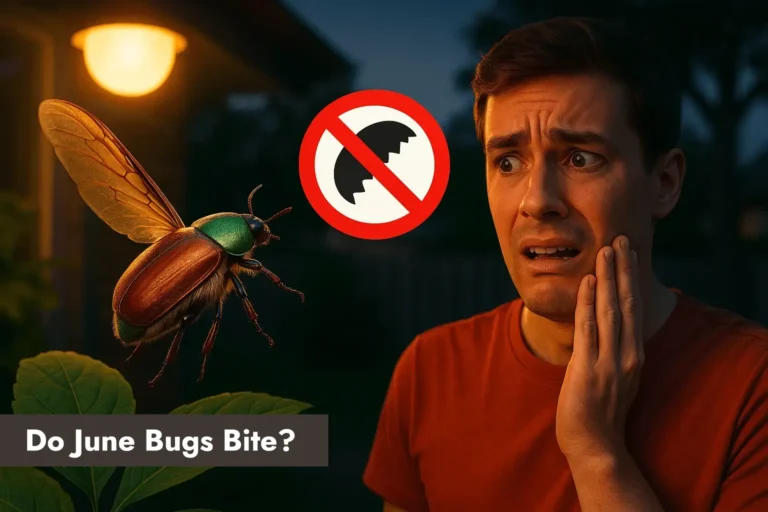do guinea fowl attack humans
Introduction – The Unexpected Threat in Your Backyard
It sounds like something out of a cartoon—a man sprinting across his yard, flailing arms, with a screeching guinea fowl in hot pursuit. But this isn’t fiction. Guinea fowl attacks are real, and they’re more common than you might think.
These birds may look goofy with their bald heads and polka-dot feathers, but they’re fiercely territorial. Native to Africa and now popular on homesteads worldwide, guinea fowl are often kept for pest control and as natural alarms.
Don’t be fooled by their size. Guinea fowl behavior includes loud screeching, aggressive pecking, and full-on chasing when they feel threatened. While not deadly, they can hurt you—and definitely startle you.
So, do guinea fowl attack humans? The short answer: yes, under the right (or wrong) circumstances. Let’s unpack how these feathered watchdogs turned backyard bullies, and how you can stay on their good side.
Understanding Guinea Fowl Behavior
Guinea fowl may not be the first animal you think of when it comes to aggression, but their behavior can surprise you. Understanding their instincts and triggers is key to staying safe—and keeping your backyard drama-free.
Natural Instincts and Social Structure
Guinea fowl are flock animals, and they stick together like a tight-knit gang. Where one goes, the rest follow—especially when it comes to chasing off intruders.
They live by a pecking order, and yes, it’s just as intense as it sounds. Territorial behavior is built into their DNA, especially when guarding space or asserting dominance.
Aggression Triggers in Guinea Fowl
During mating season, guinea fowl aggression can spike. Males become bold, loud, and far more likely to confront humans or pets.
Females guarding a nest can also get feisty. If you get too close, don’t be surprised if she charges you.
Food competition is another common trigger. Even your presence near a feeding area can be seen as a threat.
Sometimes, guinea fowl simply mistake humans for predators. A wrong move—or even a hat—can set them off.
Are Guinea Fowl Dangerous to Humans?
Most people assume guinea fowl are harmless, but their behavior can sometimes cross into aggressive territory. So let’s get to the truth: are guinea fowl dangerous to humans? In certain situations—yes, they absolutely can be.
Do Guinea Fowl Attack Humans?
Yes, guinea fowl do attack humans, especially if they feel threatened or territorial. These birds are known to chase, peck, and flap their wings aggressively to scare off intruders.
You might see them lower their head, puff up their body, or screech loudly—these are signs a charge could be coming. While it may look funny, it can be startling and even painful if they connect.
Most attacks happen when you enter their space too quickly, approach their nest, or unknowingly challenge the dominant bird in the flock.
Can Guinea Fowl Hurt You?
While they’re not deadly, guinea fowl can hurt you—especially if you’re caught off guard. Sharp claws can cause scratches, and a sudden chase might lead to a trip or fall.
Children, elderly people, and small pets are most at risk. Even if the physical harm is minimal, the surprise and noise can be genuinely distressing.
Bottom line: don’t underestimate a bird with attitude and a loud beak!
Real-Life Guinea Fowl Attack Stories
While guinea fowl are often praised for their pest control abilities and natural alarm calls, there have been instances where their behavior has raised concerns. Below are some real-life accounts highlighting such experiences:
1. Aggressive Behavior Towards Family Members
A user on the BackYard Chickens forum shared a troubling experience with their guinea fowl:
“This guinea has been doing this for a while to the point of attacking anyone.”
This highlights that, without proper management, guinea fowl can become aggressive towards humans.
2. Delivery Personnel Encounter
In a widely viewed YouTube video titled “Guinea Hens Chase Away Delivery Man,” a delivery person is seen being chased off a property by a group of guinea hens. The birds’ protective nature led them to perceive the delivery person as an intruder, resulting in aggressive behavior.
3. Protective Nature Leading to Aggression
An article from Marin Humane describes how guinea fowl can become highly protective of their territory:
“They must have been far away when they heard my call as they were panting, hungry, and thirsty as we rejoiced in our reunion.”
This anecdote underscores the birds’ strong territorial instincts, which can sometimes manifest as aggression towards perceived threats.
These accounts illustrate that while guinea fowl can be beneficial additions to a property, their behavior requires careful management to prevent potential aggression towards humans and other animals.
Historical Role of Guinea Fowl – Warriors or Watchdogs?
Guinea fowl have a long and colorful past. Native to Africa, they were first domesticated over 4,000 years ago in Ancient Egypt, where they were prized for their alertness and insect-eating habits.
Early farmers discovered their value as “watchbirds.” Loud and quick to sound the alarm, guinea fowl were used to guard flocks and alert humans to strangers or predators—long before home security systems existed.
Historical records and folklore often mention domestic bird aggression, especially during nesting season. Their fierce loyalty to territory and flock made them both useful and, at times, unpredictable.
Despite their small size, these birds have always played a bold role on the farm—part guard, part pest control, and part wild card.
Survival Tips: How to Handle Aggressive Guinea Fowl
If you’re dealing with a territorial guinea fowl, you’re not alone. These birds can go from quirky to confrontational fast. Here are some survival tips for bird attacks that actually work.
Prevention Tactics
Give guinea fowl space—they hate being crowded. Walk slowly around them and avoid sudden movements.
Avoid direct eye contact. Staring can be seen as a challenge, especially by dominant males.
Respect their territory. Don’t walk near nesting spots or feeding zones if they’re acting agitated.
During an Attack
Stay calm and stand your ground. Use a broom, stick, or jacket to gently create space—never swing aggressively.
Do not turn your back. Back away slowly while keeping your eyes on the bird’s movements.
If children are around, scoop them up and put a physical barrier (gate, chair, etc.) between them and the bird.
Long-Term Control
Training guinea fowl is possible. Use food rewards to condition calm behavior and discourage pecking.
Set up proper fencing to control where the flock can roam. Segregate overly aggressive birds if needed.
In rare cases, you may need to rehome or cull a particularly dangerous bird to protect people and pets.
Comparing Guinea Fowl to Other Aggressive Birds
When it comes to wild bird attacks on humans, guinea fowl aren’t alone. They share some surprisingly bold behavior with birds you might already know to avoid.
Roosters are notorious for sneak attacks and sharp spurs. Geese will charge anything they see as a threat, and swans—graceful as they look—can break a human arm with a wing strike.
Cassowaries take the crown. Native to Australia, they’re considered one of the most dangerous birds on Earth, capable of delivering deadly kicks.
On the aggression scale, guinea fowl sit below cassowaries and swans but above most domestic chickens. They’re loud, fearless, and persistent—but not lethal.
In all these cases, the survival strategy is the same: don’t provoke, don’t run, and never underestimate a bird with attitude.
Why Guinea Fowl Attack Matters to Homesteaders
For many homesteaders, guinea fowl are a double-edged sword. They’re amazing for pest control—but their territorial streak can turn into full-blown aggression.
Homesteading bird safety means finding the balance. Give them room to roam, don’t overcrowd your coop, and keep human interaction consistent from a young age.
Use tools like fencing, netting, and visual barriers to create zones and reduce confrontations. If needed, isolate aggressive birds to maintain peace on the property.
Handled right, guinea fowl can be a helpful part of your homestead—not a daily showdown in the yard.
Final Verdict: Should You Be Afraid of Guinea Fowl?
So, do guinea fowl attack humans? Yes—but not without reason. These birds are naturally defensive, not evil villains waiting to pounce.
Think of it as a “respect, not fear” situation. Understand their behavior, give them space, and they’ll usually leave you alone.
They’re not killers—but they are bold, loud, and occasionally chaotic. Handle them right, and they’ll be more watchdog than wild card.
FAQs
Guinea fowl don’t typically bite, but they can peck sharply when they feel threatened. While not dangerous, the peck can sting—especially to kids or if you’re caught off guard.
Yes! Guinea fowl are excellent natural alarms. They’re loud, alert, and quick to react to strangers or predators, making them surprisingly effective guard animals on farms and homesteads.
To some extent, yes. Guinea fowl respond best to early handling, consistent routines, and positive reinforcement. While you can’t fully tame their instincts, you can reduce guinea fowl aggression with regular interaction.
First, identify the trigger—territory, nesting, or food. Use fencing or separation if needed. In extreme cases, consider rehoming or culling for homesteading bird safety and peace of mind.
References and Further Reading
For those interested in delving deeper into guinea fowl behavior, homesteading practices, and bird aggression safety, here are some valuable resources:
- Scientific Studies on Guinea Fowl Behavior:
- Formation of the Pecking Order during Small-Scale Floor Feeding in Helmeted Guinea Fowl: This study examines how male guinea fowls establish hierarchies under confined feeding conditions.
- Homesteading Resources:
- A Beginner’s Guide To Raising Guinea Fowl by Azure Farm: Offers practical advice on integrating guinea fowl into your homestead, highlighting their benefits and challenges.
- Raising Guinea Fowl On The Homestead by Tales From Home: Shares personal experiences and tips for successfully managing guinea fowl in a homestead setting.
- Animal Behavior Studies:
- Despite Their Tiny Brains, These African Birds Can Form Complex Relationships: An article discussing the social structures of vulturine guinea fowl and their ability to form intricate relationships.
- Bird Aggression Safety Tips:
- How to Stop Aggressive Behavior in Pet Birds by The Spruce Pets: Provides strategies to manage and reduce aggression in pet birds, applicable to various species.
- Protect Against Aggressive Bird Species by OMNIS Pest Control: Offers insights into safeguarding oneself from aggressive bird behaviors and implementing preventive measures.
These resources offer comprehensive information to enhance your understanding and management of guinea fowl and related bird behaviors.



